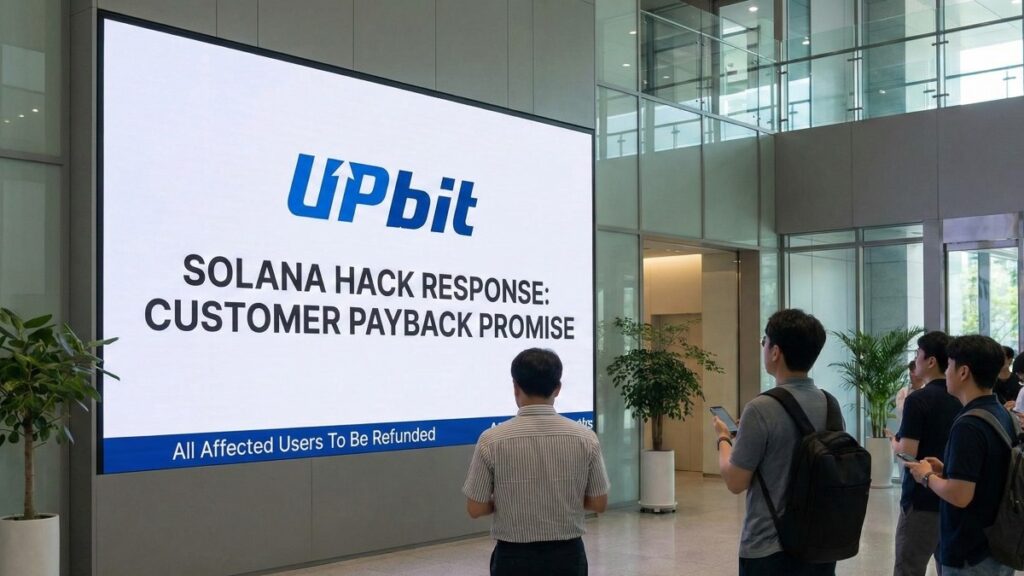TL;DR:
- Upbit suffers a $36 million hack on Solana assets, affecting 24 tokens and freezing withdrawals.
- Exchange commits to full reimbursement of users, sparking debate on crypto-custody obligations after breaches.
- Analysts foresee stronger regulatory pressure and enhanced security protocols as crypto platforms face renewed scrutiny.
A major security breach at a prominent South Korean exchange shook confidence in blockchain safety this week when Upbit revealed a $36 million hack involving Solana-network assets. The attack affected 24 tokens tied to Solana, including SOL and USDC, leading to frozen withdrawals and a sudden spike in volatility across related markets. The size and sophistication of the exploit have fueled concerns over how secure even leading exchanges remain.
Fallout from hack raises red flags on exchange security and regulation
According to blockchain-data analysts, the method used in the exploit was “almost impossible for an ordinary hacker,” prompting speculation that an advanced hacking group may have been involved. The firm monitoring crypto flows warned that the exploit shows how exchanges remain vulnerable even with established security protocols. As a result, community pressure is mounting for more robust safeguards and stringent audits in crypto platforms.

In response, Upbit pledged full reimbursement of user assets affected by the hack, aiming to restore trust and limit fallout. The exchange froze about 2.3 billion KRW worth of funds and committed to compensating all impacted customers. This move, according to observers, marks a turning point: exchanges may no longer treat hacks as unavoidable collateral, but as serious breaches requiring transparency and accountability.
The attack also triggered immediate ripple effects in the Solana ecosystem: trading volumes dropped sharply, arbitrage flows halted, and token prices surged temporarily before stabilizing. Many investors scrambled to reassess exposure to Solana-based assets. Market sentiment turned cautious, highlighting how a single security failure can ripple across entire networks and investor confidence.
Analysts say the event could prompt a broader shift in how exchanges and regulators approach crypto security. They predict intensified scrutiny on exchange protocols, and foresee possible regulatory reforms aimed at enforcing tighter safeguards and clearer custodial standards for user funds.
Whether this incident leads to lasting change remains uncertain, but for now it underlines a crucial lesson: the promise of decentralization cannot shield platforms from vulnerabilities — and trust hinges on rigorous security, transparency, and responsibility from those managing crypto assets.










